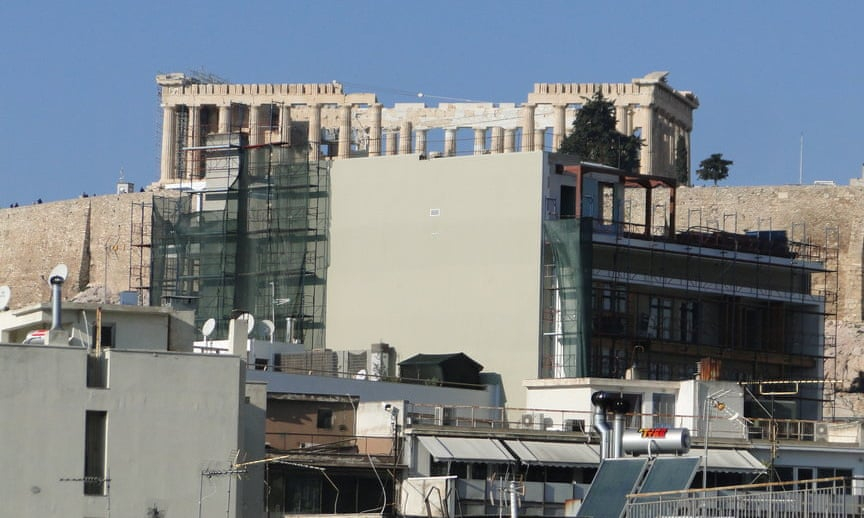Athens’ tourism boom capitalises on building regulations relaxed in the economic crisis
Battle lines are being drawn in the skies above Athens’ historic city centre from the rooftops of locals galvanised into action by the prospect of multi-storey buildings being constructed within metres of the Periclean masterpiece, one of the world’s premier heritage sites.
With word spreading of a “wall of high-rise hotels” being planned around the Acropolis in the coming years, Frezadou, a Swiss-trained architect and urban planner, is spearheading a campaign to stop the building spree, initiating a petition on the online activist network Avaaz that has already collected upwards of 25,000 signatures.
“Clearly, what we need urgently in the name of sustainability is new building and urban planning rules,” she said.
....
Insisting on everyone’s right to view the monument, Greece’s culture minister, Myrsini Zorba, acknowledged the protests had to be taken into account. “A view is a cultural good and in no circumstance can it be turned into a privilege for the few. We ought to be responsive to the protest of civil society so that rule of law and a sense of justice are upheld.”
However, privately culture ministry officials admit they are in a bind, hamstrung by laws that allow for taller buildings. “As archaeologists we are called to work in the ground, not up in the air,” said one. “This was legislation passed by the environment ministry.”
Across Europe, conservationists are watching closely and they insist they will hold the Greek government to account. “This is an extremely important battle that has to be won,” said Sneška Quaedvlieg-Mihailović, the secretary general of Europa Nostra, widely regarded as the voice of cultural heritage in Europe.
“We are not against new buildings of contemporary architecture but they have to respect the heritage settings of European cities. A view of the Acropolis is the most miraculous of any to be had,” she told the Guardian. “Fortunately, civil society has taken a very strong stance. What we expect now is a very clear signal from national authorities that not everything is for sale.”
